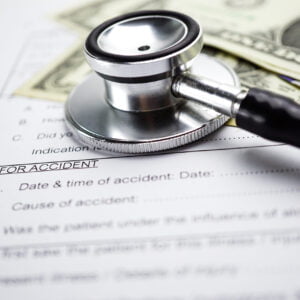A Guide to Ecstasy Addiction and Lasting Recovery
Questions Answered in This Article:
- What is Ecstasy?
- Is Ecstasy Addictive?
- How Can Rehab Help With Ecstasy Addiction?
Ecstasy, also called MDMA, is a popular synthetic drug often used as a party drug by many young adults seeking intense feelings of euphoria and happiness. Despite its reputation as harmless fun, ecstasy addiction carries serious risks that affect both mental and physical health. The effects of ecstasy addiction can include memory problems, anxiety, and long-term damage to brain function. Millions of people have tried ecstasy, and misuse can lead to significant problems, including addiction.
At Windward Way Recovery, a trusted addiction treatment center, we provide expert ecstasy addiction treatment tailored to each individual’s needs. Our personalized approach supports clients through the challenges of ecstasy addiction recovery, helping them overcome dependence and rebuild healthy, drug-free lives. With the right care and support, lasting recovery from ecstasy addiction is achievable.
What is Ecstasy?
Ecstasy works by changing the chemicals in the brain, especially serotonin, dopamine, and norepinephrine. These chemicals control mood and feelings of pleasure, which is why users often feel happy and more connected to others. However, ecstasy increases the risk of addiction and can cause serious damage to memory, thinking, and emotions over time.
For those struggling with ecstasy addiction, ecstasy detox is an important first step to safely clear the drug from the body. Withdrawal symptoms such as fatigue, depression, and irritability can be managed best under medical supervision. Completing ecstasy detox prepares individuals for further treatment and improves chances of lasting recovery.
Is Ecstasy Addictive?
People often wonder, “Is ecstasy addictive?” The answer is yes. Although it might not cause addiction as fast as drugs like heroin or cocaine, MDMA is addictive and can lead to psychological dependence. This means people may want to keep using it even if it causes harm.
When people use ecstasy regularly, they can develop:
- Increased tolerance, which means they need to take more of the drug to feel the same effects
- Compulsive drug-seeking behavior, where they keep trying to get and use the drug even if it hurts their life
- Withdrawal symptoms, like feeling sad, tired, or restless when not using, which makes quitting very hard
Knowing that ecstasy is addictive can help people and their family members realize when to ask for help.
Signs of Ecstasy Addiction
Recognizing the signs of ecstasy addiction early can make a big difference in getting timely help and preventing further harm. Ecstasy addiction affects both behavior and physical health, so it’s important to be aware of changes in yourself or loved ones. Knowing what to look for helps in taking the right steps toward recovery.
These signs may include:
- Strong cravings for ecstasy and not being able to control use
- Spending less time with family and friends or stopping important activities
- Feeling moody, anxious, or easily upset
- Trouble sleeping and changes in appetite or eating habits
If you notice these signs in yourself or a loved one, seeking professional help promptly can improve outcomes. Early intervention increases the chances of successful treatment and lasting recovery. Don’t wait to get support if ecstasy addiction is affecting your life or someone you care about.
Effects of Ecstasy and Long-Term Risks
Ecstasy impacts both the body and brain in significant ways. Understanding these effects is important for recognizing the potential dangers of this drug. The changes caused by ecstasy can affect a person’s health immediately and well into the future.
The effects of ecstasy can be split into short-term and long-term effects:
Short-term effects
Include feeling very energetic, happy, and loving, but also faster heartbeat, dehydration, overheating, and sometimes nausea. These effects can be dangerous, especially in party settings where people may not drink enough water or take breaks.
Long term effects
Include problems with memory, mood disorders like depression and anxiety, and damage to brain cells that produce serotonin. These effects can last for months or even years after stopping ecstasy use.
The risks of ecstasy use go beyond the short-term effects and can cause lasting damage to the brain and mental health. Taking these dangers seriously and seeking help early is vital for recovery. Proper treatment can reduce long-term harm and improve quality of life.
Treatment Options for Ecstasy Addiction
Treating ecstasy addiction needs a careful and complete approach. At Windward Way Recovery, we offer many treatment options to help people safely stop using ecstasy and build healthy lives.
These include:
- Medically supervised detox, where doctors help manage withdrawal symptoms to keep people safe and comfortable while they stop using the drug
- Customized treatment plans designed to meet the unique needs of each person, including their mental and physical health
- Evidence-based therapies like Cognitive Behavioral Therapy (CBT), which helps people understand the thoughts and feelings that lead to drug use and teaches healthier ways to cope
- Access to support groups, which offer encouragement, connection, and accountability as people work on their recovery
These treatments work together to give the best chance of success.
How Can Rehab Help With Ecstasy Addiction?
Joining an ecstasy addiction rehab program gives people a strong, supportive place to heal. Rehab programs focus on more than just stopping drug use — they also help address the causes of addiction and teach skills for long-term recovery.
Recovery includes:
- Treating underlying mental health issues such as anxiety or trauma that might have contributed to drug use
- Creating plans to prevent relapse and handle triggers that might cause a return to ecstasy
- Involving family members to help build a strong support network around the person in recovery
At Windward Way Recovery, our programs are specially designed for young adults, who often face unique challenges with MDMA addiction.
Personalized Care at Windward Way Recovery
At Windward Way Recovery, every client receives care tailored to their unique needs and circumstances. Our compassionate team focuses on creating individualized treatment plans that address both the physical and emotional aspects of addiction. This personalized approach helps ensure the best chance for lasting recovery.
Our team builds individual treatment plans that combine:
- Safe and supervised detox
- Cognitive Behavioral Therapy (CBT) and other proven therapies
- Support and education for clients and their family members
Our supportive environment extends beyond the client to include their family, providing education and guidance throughout the healing process. With expert therapies and medically supervised detox, we guide each person safely through every stage of treatment. At Windward Way Recovery, no one faces addiction alone.
Discover Effective Treatment for Ecstasy Addiction
Though ecstasy is often seen as a fun party drug, it carries serious risks of addiction and harmful effects on the brain and body. Recognizing the signs of ecstasy addiction and seeking professional treatment early can greatly improve the chances of a full recovery. At Windward Way Recovery, we help men and women overcome addiction by providing community, connection, and purpose through expert care and evidence-based therapies.
If you or a family member is struggling with ecstasy addiction, don’t wait to get help. Contact Windward Way Recovery today at (949) 749-3522 for personalized treatment and support. Our compassionate team is dedicated to guiding you on the path to lasting recovery and a healthier, drug-free future.



